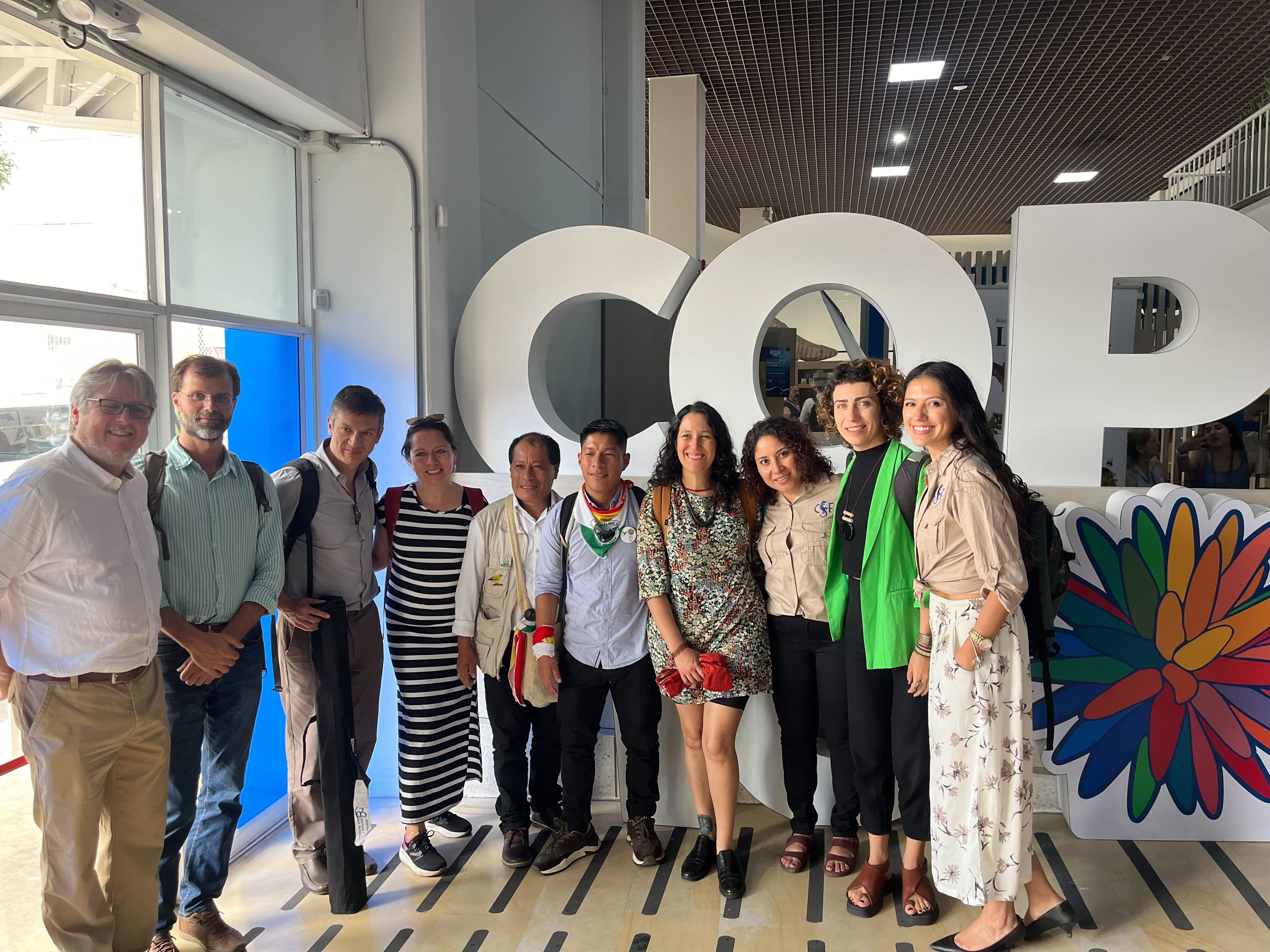News
I have just returned from COP16 in Cali with mixed emotions of pride in how far we have come and an urgency to move even farther. If you remember, I attended the 15th COP in 2022 held in Montreal and I shared with you the seven things that CSF can contribute to the Global Biodiversity Framework, and more specifically on which targets we could apply our economic tools and capacity building expertise.
The Challenges of REDD+ Projects in Colombia: A Look Beyond Environmental Promises
By Rocío Rodríguez Granados
Colombia Director
Bogotá, Colombia
Empowering Communities: Economics as a Catalyst in Environmental and Cultural Preservation
By Rocío Rodríguez Granados
Colombia Director, Conservation Strategy Fund
The Mining Impacts Calculator is being adapted to the realities of the Peruvian and Colombian Amazon.
In June 2022, the Conservation Strategy Fund (CSF) participated in the Second Ordinary Session of the Committee to Combat the Illicit Exploitation of Mining Deposits (CLEIYM) of the Department of Amazonas in Colombia. The meeting is a space promoted by the Government of Amazonas to articulate between State agencies and key actors.
Vídeo: Análisis Costo Beneficio de los Proyectos Portuario y Vial en Tribugá
Road in Brazil. Photo credit: Pedarilhos/Shutterstock.com.CSF has been working with the Moore Foundation, IPAM, and FCDS to identify the relative riskiness of planned roads in the Amazon basin in terms of economic, social and environmental costs. Our goal is to promote better infrastructure decision-making in Bolivia, Brazil, Colombia, Ecuador, and Peru by contributing reliable data to the national road planning process.
Highway in Ecuador. Photo credit: Shutterstock/ Dr. Morley Read.
Phanor Montoya Maya, Director of Corales de Paz, Colombia. Photo: Niki Gribi
Aerial view of a road through the Amazon forest in Ecuador. Photo credit: Dr. Morley ReadInfrastructure investments in the Amazon can support economic and social development, and bring services to remote populations. However, if poorly planned, they can also result in irreversible, destructive change to the environment and ecosystem services on which communities depend, and lead to inefficient use of economic resources.










